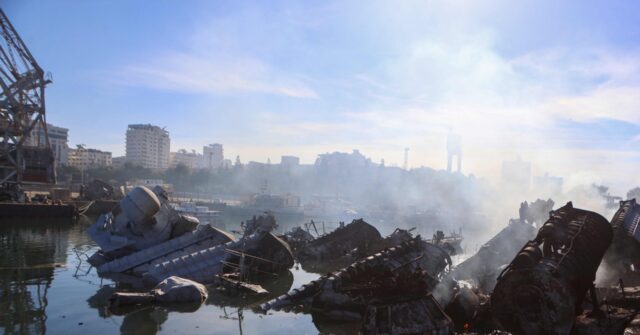In recent developments, Israel has intensified its military operations against the remnants of the Syrian military under Bashar al-Assad, launching hundreds of airstrikes each day. According to Israeli Army Radio, this increase in aggression marks the most significant series of attacks on Syria since the Six-Day War in 1967. Following the ousting of Assad’s regime by rebel forces, Israel has been actively targeting Syrian military assets, including the air force, missile stockpiles, chemical weapons sites, and more. The Israeli Air Force (IAF) has conducted airstrikes that even extended to the Syrian navy’s facilities located along the Mediterranean coast, underscoring Israel’s determination to eliminate any military threats from Syria.
Historically, conducting airstrikes over Syria posed significant challenges due to geographical and technological barriers. The Anti-Lebanon mountain range, including Mount Hermon, obstructed low-flying aircraft from crossing into Syrian airspace undetected. Israeli forces had to navigate high altitudes, risking exposure to advanced radar systems and surface-to-air missile installations. However, the protracted civil war in Syria has considerably weakened the Assad regime, thereby allowing Israel greater operational freedom in the skies. In recent years, Israel has capitalized on this situation, frequently targeting supply lines, particularly those linked to Hezbollah in Lebanon, as well as Iranian military interests within Syria.
With the Assad regime faltering and Iranian forces retreating, Israel has seized the opportunity to press forward with operations that would have been impossible in the past. The current absence of effective opposition in Syrian airspace has enabled the Israeli military to execute strikes with relative ease. The diminished Syrian military capabilities mean that Israel can now strike key targets without risking confrontation with a robust air defense network. This military strategy aims to ensure that any remnant of the Assad military cannot threaten Israel in the future, nor can it potentially fall into the hands of rebel actors who may pose future risks.
The Israeli strategy mirrors the advice given by Donald Trump regarding military equipment in Afghanistan after the U.S. withdrawal. Trump suggested that it would have been prudent to destroy military assets rather than leaving them vulnerable to Taliban control. Similarly, Israel seems to prioritize the elimination of Syrian military capability to prevent any resources or equipment from being repurposed by adversarial factions, such as militant groups or foreign powers like Russia or China. This approach underscores a growing trend wherein nations with military superiority take preemptive measures to eliminate threats before they can manifest.
In this context, Israel’s military actions may also reflect a larger geopolitical strategy that seeks to stabilize its own security environment in the face of regional instability. Ongoing tension with Iran and Hezbollah, coupled with the unpredictability of Syria’s future, compels Israel to maintain a proactive posture. By eroding the military capabilities of Syria, Israel hopes to create a buffer against potential aggressions that could arise from a reshaped military landscape in the region. Consequently, the operations illustrate not only a tactical military objective but also a strategic alignment with broader national security interests.
The sustained Israeli campaign against Syria indicates a significant shift in dynamics within the region, especially in the wake of the Syrian civil war’s repercussions. With Russia’s intervention and the complexities introduced by various factions, the future remains uncertain. However, Israel’s current military engagement emphasizes a calculated effort to prevent any resurgence of threat from its northern neighbor while reinforcing its own strategic interests. As geopolitical landscapes evolve and military capabilities shift, this ongoing conflict may set the stage for further developments and challenges both for Israel and the broader Middle East.

